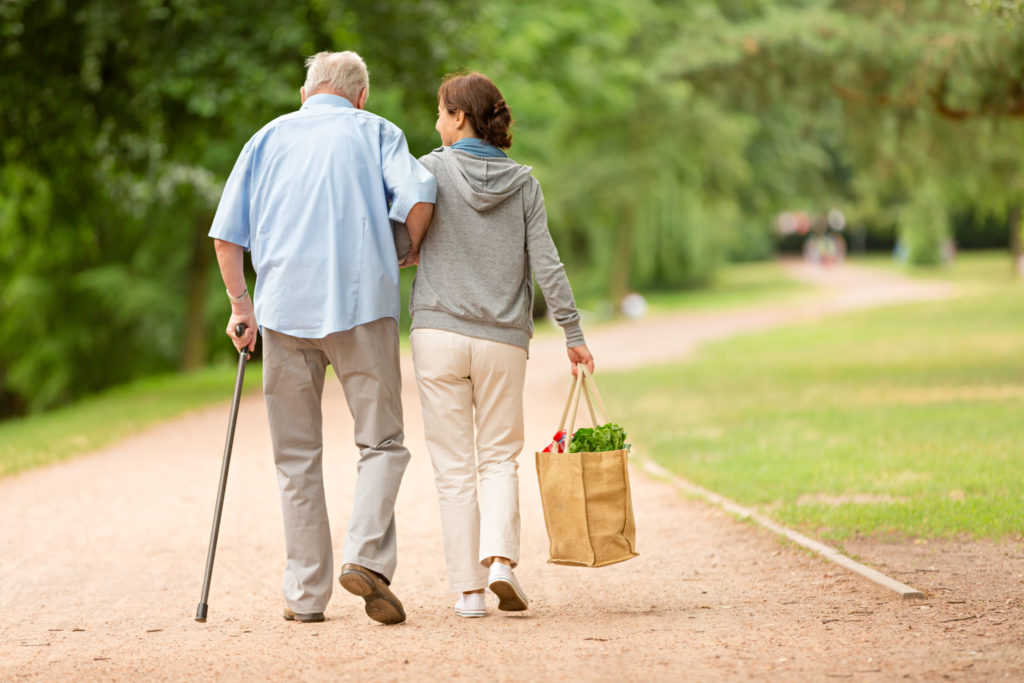July is the month each year when UV Safety Awareness Month is staged, and the idea behind this observance is to raise awareness of the potential dangers associated with unprotected exposure to the harsh rays of the sun. This is an excellent idea because many seniors and their caretakers tend to forget that seniors are still good candidates for sunburn. It’s also true that seniors have more cases of skin cancer than any other age group, possibly because they’ve had cumulative years of exposure to the sun. With Ultraviolet Safety Awareness Month on the horizon, we’ll discuss in this article some of the things you should be aware of with regard to your senior loved one, and being exposed to strong sunshine.
Bug bites
Bug bites are more than just an irritation, especially if your senior loved one is a person who tends to scratch a lot. Scratching can cause an infection or scarring to occur, and then you’ll have a worse problem to deal with. Bug bites can be prevented or at least minimized by ensuring that your senior has most of their exposed skin covered up by some kind of loose-fitting clothing. Arms and legs tend to be great targets for summertime bugs since there are large patches of exposed skin in these areas. For that reason, it would be worthwhile to spray your elderly loved one with an effective bug repellant that will work for several hours. Chances are, you and your senior aren’t planning to be in the sun for long hours, so one spray with a good repellant should last the entire time you’re both outdoors.
Sunburn
Every year, thousands if not millions, of Americans get sunburned to some degree when summer rolls around. It’s easy to forget the kind of effects that strong sunshine can have on white skin until someone ends up with a painful burn that requires attention. Keep in mind that it isn’t just the sunburn that you have to protect against – exposure to the ultraviolet rays of the sun can cause premature aging and skin cancer. It’s always best to apply a strong sunscreen rated at SPF 30 or above, so your senior has adequate protection. If your group is out for a while in the sun, or if you’re sweating a lot, the sunscreen may have to be re-applied periodically to ensure continuing protection. If there’s an occasion where you weren’t as vigilant as you should have been and your loved one does get burned, the best thing to do is avoid sun exposure for a few days. The discomfort of the burn can be largely alleviated by slathering aloe on the burn so it can soothe the inflamed skin. Look out for the development of blisters, because this probably indicates a trip to the doctor’s office is necessary.
Heat rash
Heat rashes generally occur early in the season or during initial exposure to the sun for your senior. They can be quite irritating and uncomfortable, with relief only coming after applying aloe or some kind of moisturizing cream. Rashes can appear in areas where there is a folding of skin (like around the tummy) and these areas are more difficult to treat. Since they’re not directly exposed to open air, they can sweat and cause increased irritation. There are lots of ways to avoid getting a heat rash, including the use of sunscreen, wearing protective clothing, staying in the shade, and avoiding the peak hours of sunshine. If you or your senior does come down with a heat rash however, it can be treated effectively with hydrocortisone cream, aloe vera, or a good moisturizer. Any serious-looking rashes on the skin should be referred to the family doctor for treatment. While you’re checking for heat rash, it’s also a good idea to be on the lookout for any new moles or blemishes that appear on your senior’s skin. These could be early signs that skin cancer is developing, and the sooner this is treated, the more likely it is that treatment will be successful.
Medication side effects
Some medications are known to cause a person to be more sensitive to sunshine, which means the effects of the hot sun may be felt much sooner than usual and can be more intense. If your senior loved one has been taking any new medications, it will be advisable to see how they react in the sunshine, to make sure there are no adverse reactions. Some seniors have been known to develop inflammation and swelling, as well as more intense sunburn when taking certain medications. If you’re not sure about the impact of specific meds, make sure to consult with the family doctor. In some cases, warnings may be printed on the label of the meds, so be sure to read these carefully for any warning signs. If you observe any suspicious side effects exhibited by your sun-drenched senior, you should quickly get them to a shady area and take some closer observations.

